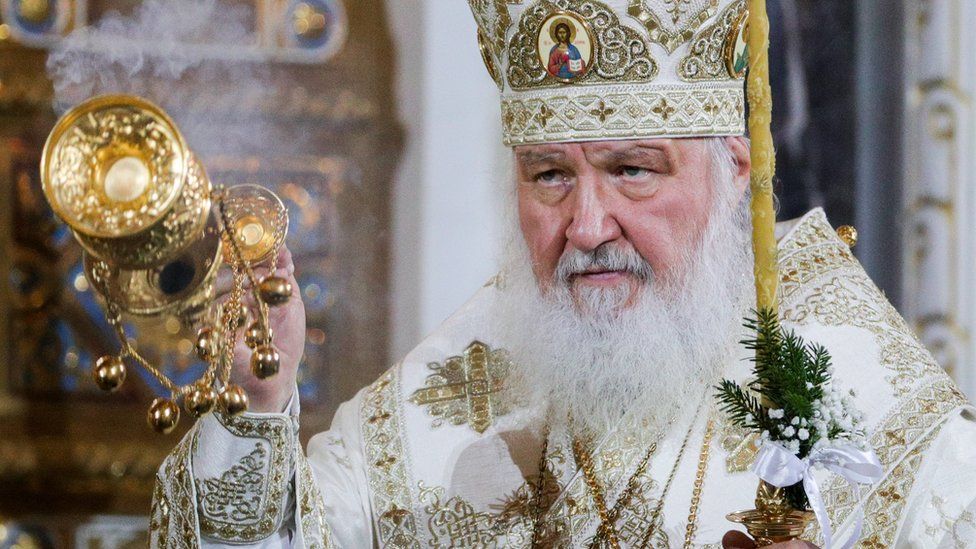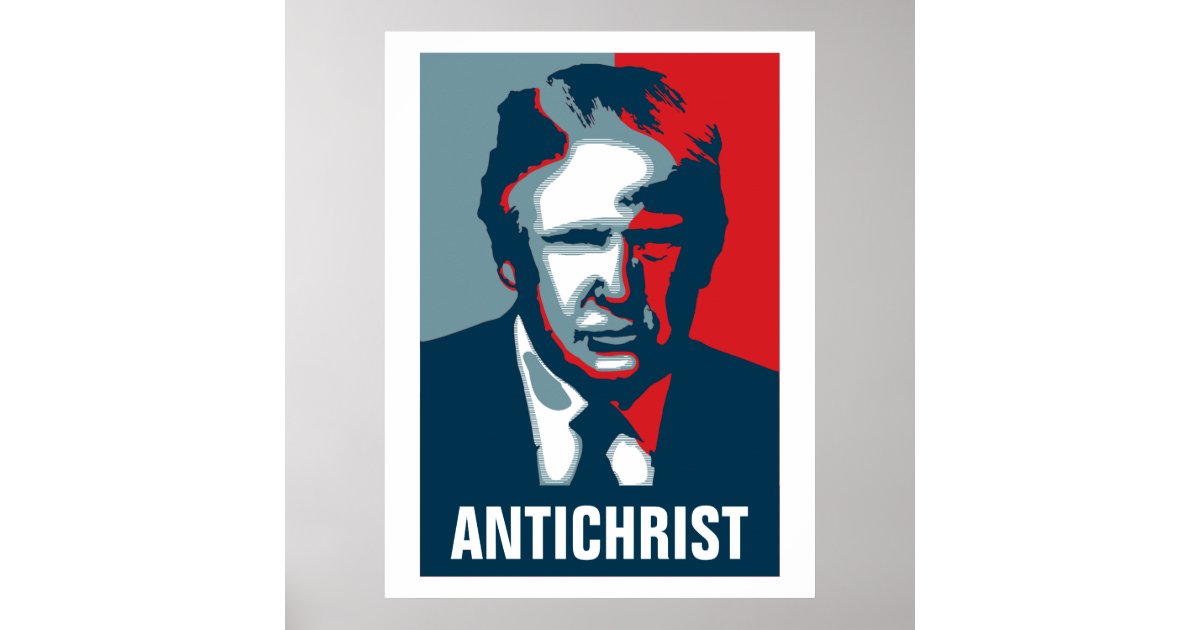Donald Trump has long been a polarizing figure in American politics, and debates surrounding his leadership have sparked numerous discussions, including the controversial claim that Trump is the antichrist. This topic has gained traction among certain religious circles, leading to widespread curiosity and debate. In this article, we will delve into the origins of this claim, its theological basis, and the evidence for and against it.
While the idea of Trump being the antichrist might seem far-fetched to some, it is a belief held by a segment of the population. This belief stems from interpretations of religious texts, historical patterns, and the characteristics attributed to the antichrist in religious doctrines. It is essential to approach this topic with an open mind, understanding the context and perspectives that fuel such claims.
As we explore this controversial subject, we will provide a comprehensive analysis of the claims, debunk myths, and offer insights into why this belief has gained traction. By the end of this article, you will have a clearer understanding of the theological, historical, and political dimensions of this debate.
Read also:Taecyeon Wife Exploring The Life And Love Of The Kpop Star
Table of Contents
- Introduction
- Biography of Donald Trump
- The Religious Background of the Antichrist
- Biblical Perspective on the Antichrist
- Characteristics of Trump vs. the Antichrist
- Historical Context of the Antichrist Theory
- Political Implications of the Claim
- Debunking Myths About the Antichrist
- Expert Opinions on the Controversy
- Conclusion
Biography of Donald Trump
Early Life and Career
Donald J. Trump was born on June 14, 1946, in Queens, New York. He is the fourth child of Fred and Mary Trump. Trump's early life was marked by privilege, as his father was a successful real estate developer. After graduating from the Wharton School of the University of Pennsylvania with a degree in economics, Trump joined his father's business, where he quickly made a name for himself as a shrewd negotiator and real estate tycoon.
Below is a summary of Trump's personal and professional life:
| Full Name | Donald John Trump |
|---|---|
| Date of Birth | June 14, 1946 |
| Place of Birth | Queens, New York |
| Profession | Businessman, Television Personality, Former President of the United States |
| Political Party | Republican |
Political Career
Trump entered politics in 2015 when he announced his candidacy for the presidency. His campaign was marked by controversial statements and a focus on populist policies. Despite facing numerous challenges, Trump won the 2016 presidential election, becoming the 45th President of the United States. His presidency was characterized by divisive policies, a focus on economic growth, and a strong stance on immigration.
The Religious Background of the Antichrist
The concept of the antichrist has deep roots in Christian theology. It is primarily derived from the New Testament, specifically the books of 1 John and 2 John, where the term "antichrist" is explicitly mentioned. The antichrist is believed to be a figure who will deceive people, claiming to be the Messiah while opposing God's will.
Key Religious Texts
- 1 John 2:18: "Children, it is the last hour, and as you have heard that antichrist is coming, so now many antichrists have come. Therefore we know that it is the last hour."
- 2 Thessalonians 2:3-4: "Let no one deceive you in any way. For that day will not come, unless the rebellion comes first, and the man of lawlessness is revealed, the son of destruction, who opposes and exalts himself against every so-called god or object of worship, so that he takes his seat in the temple of God, proclaiming himself to be God."
Biblical Perspective on the Antichrist
The Bible provides several clues about the characteristics of the antichrist. These include:
- Opposing God's will and deceiving people.
- Claiming divine authority or power.
- Leading a global movement or empire.
- Persecuting believers and those who oppose him.
These characteristics have led some to speculate about historical and contemporary figures, including Donald Trump, who they believe fits the description.
Read also:Exploring The World Of Odisha Viral Videos Culture Trends And Impact
Characteristics of Trump vs. the Antichrist
Similarities
Some argue that Trump exhibits traits that align with the antichrist narrative. For instance:
- His tendency to make bold, self-aggrandizing statements.
- His focus on nationalism and "America First" policies, which could be interpreted as opposing global unity.
- His controversial stance on religious freedom and moral issues.
Differences
On the other hand, many theologians and scholars point out significant differences between Trump and the biblical depiction of the antichrist:
- Trump has not claimed divine authority or openly opposed Christianity.
- His policies, while controversial, do not align with the global domination predicted in religious texts.
- His actions and statements are often more aligned with political strategy than theological prophecy.
Historical Context of the Antichrist Theory
The belief in the antichrist has existed for centuries, with various figures throughout history being labeled as potential candidates. From Nero to Napoleon, and from Hitler to modern political leaders, the antichrist theory has been a recurring theme in religious discourse.
Modern Interpretations
In recent years, the rise of globalization, technological advancements, and political polarization has fueled speculation about the antichrist's arrival. Some believe that the current geopolitical climate, marked by conflict and division, aligns with biblical prophecies about the end times.
Political Implications of the Claim
The claim that Trump is the antichrist has significant political implications. It has been used by opponents to discredit his leadership and by supporters to dismiss criticism as baseless. This debate highlights the intersection of religion and politics in American society.
Impact on Public Perception
For many, the antichrist theory is a reflection of their distrust in Trump's leadership. Others view it as a way to critique his policies and actions. Regardless of one's beliefs, it is clear that this claim has contributed to the polarized political landscape in the United States.
Debunking Myths About the Antichrist
There are several misconceptions about the antichrist that need to be addressed. For instance:
- The antichrist is not necessarily a single individual but could represent a system or movement.
- Religious texts do not provide a clear timeline for the antichrist's arrival, making it difficult to predict.
- The belief in the antichrist should not be used as a tool for political manipulation or fear-mongering.
Expert Opinions on the Controversy
Many theologians and scholars have weighed in on the debate surrounding Trump and the antichrist. Dr. Robert Jeffress, a prominent evangelical leader, has stated that while Trump's actions may be controversial, they do not align with the biblical depiction of the antichrist.
Similarly, Dr. Michael Brown, a respected Christian apologist, emphasizes the importance of separating theological prophecy from political opinion. He argues that labeling any contemporary figure as the antichrist is both speculative and unhelpful.
Conclusion
In conclusion, the claim that Trump is the antichrist is a complex and controversial topic. While some find merit in the argument based on theological and historical interpretations, others dismiss it as unfounded speculation. It is essential to approach this debate with an open mind, considering both the evidence and the broader context.
We invite you to share your thoughts and opinions in the comments section below. Additionally, feel free to explore other articles on our site for more insights into politics, religion, and current affairs. Together, we can foster a respectful and informed dialogue about the issues that matter most.

